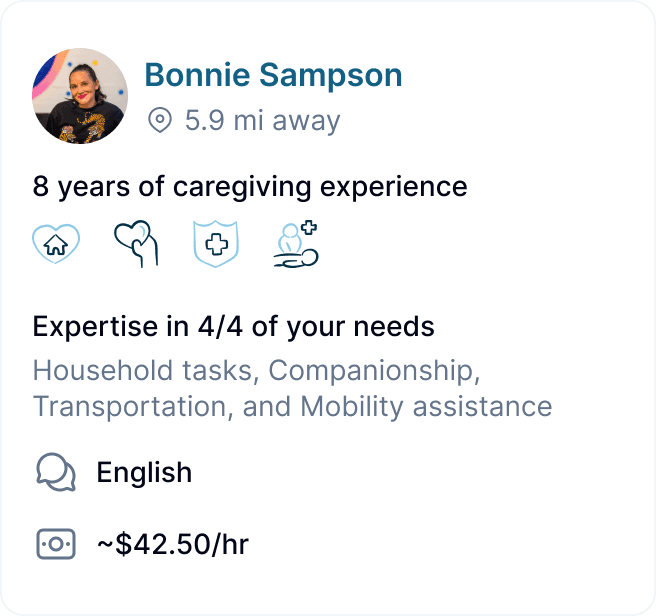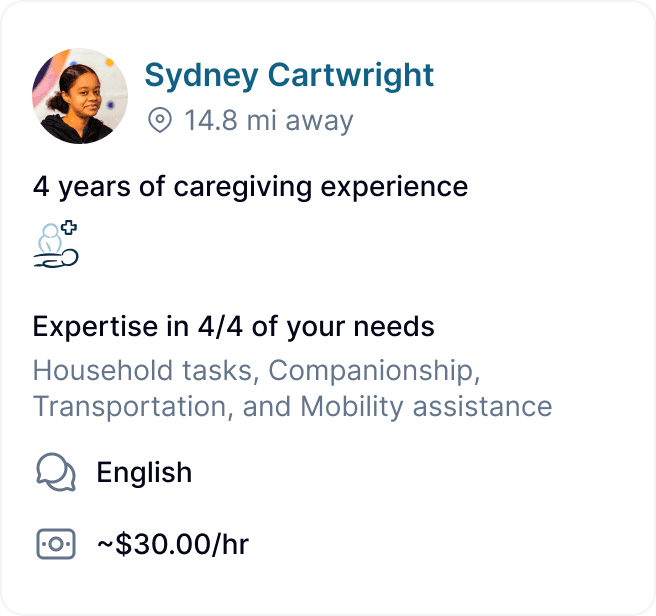How Therapy Animals Can Help with Loneliness in Seniors



Loneliness among seniors has become a significant health concern in recent years. When social connections diminish with age, the emotional and physical toll can be profound.
One increasingly popular and effective solution is the companionship of therapy animals. These special pets offer much more than just a furry friend—they provide meaningful connections that can transform a senior's quality of life. Research shows that animal companionship can dramatically reduce feelings of isolation while offering numerous health benefits for older adults.
The Growing Problem of Senior Loneliness
Loneliness is more than just a feeling of emptiness or sadness—it's a complex emotional response to perceived social isolation. For seniors, this experience often stems from life transitions: retirement, the loss of spouses and friends, children moving away, or health challenges that limit mobility. While social isolation refers to the objective lack of social connections, loneliness represents the subjective feeling of disconnection even when others may be physically present.
The health consequences of prolonged loneliness in seniors are alarming. Research has linked social isolation and loneliness to serious physical health issues including heart disease, high blood pressure, weakened immune function, and even earlier mortality. Mental health is equally affected, with increased risks of depression, anxiety, and cognitive decline or dementia. These findings make addressing loneliness not just a matter of emotional well-being but a crucial health intervention.
Understanding Therapy Animals and Their Benefits
Therapy animals differ from both regular pets and service animals. While service animals are trained to perform specific tasks for people with disabilities, therapy animals are specially trained to provide psychological or physiological therapy through interaction and companionship. These animals undergo evaluation to ensure they have the right temperament-calm, friendly, and comfortable in various environments.
The science behind animal therapy is compelling. Studies show that interaction with animals can reduce cortisol levels (a stress hormone) while increasing serotonin and oxytocin—chemicals associated with happiness and bonding. For seniors experiencing loneliness, these biochemical changes can create immediate and lasting improvements in mood and outlook.
Physical Health Benefits
The physical benefits of therapy animal interactions extend beyond biochemistry. Seniors who interact with therapy animals often experience:
Lowered blood pressure and improved cardiovascular health
Reduced pain perception
Increased physical activity through walking, grooming, or playing with the animal
Improved sleep patterns
Enhanced motivation to maintain health for the animal's sake
Even simple activities like petting a dog or cat can lower blood pressure and create a calming effect that reduces stress on the heart and improves overall physical well-being.
Emotional and Psychological Benefits
The emotional impact of therapy animals for seniors is perhaps even more significant. Regular interactions with therapy animals have been shown to:
Decrease symptoms of depression and anxiety
Provide unconditional love and acceptance
Create a sense of purpose and routine
Offer comfort during difficult life transitions
Reduce feelings of isolation and loneliness
Increase feelings of social support
For many seniors, the non-judgmental affection from an animal creates a safe space for emotional expression that might otherwise be suppressed.
Types of Animal Therapy Programs for Seniors
Seniors can benefit from animal therapy in several different formats, each with unique advantages:
Facility-Based Resident Animals
Some assisted living communities and nursing homes have resident animals that live on-site. These permanent animal companions become part of the community, offering consistent interaction for all residents. While these programs can be highly effective, they require proper staffing and protocols to ensure the animals receive proper care.
Visiting Therapy Animal Programs
Professional therapy animals and their handlers may visit senior communities or individuals aging in place in their homes on a scheduled basis. These visits provide regular interaction without the daily responsibilities of pet ownership. For many seniors, these visits become eagerly anticipated highlights of their week.
Personal Pet Ownership
For seniors who can manage the responsibilities, personal pet ownership offers the most consistent animal companionship. Dogs, cats, birds, and even fish can provide meaningful connections. The routine of caring for a pet—feeding, grooming, and exercise—also provides structure to the day and a sense of purpose that many seniors find invaluable.
For seniors aging in place who want the benefits of pet ownership but worry about certain care aspects, Clara can connect families with caregivers who can assist with pet-related tasks. Professional caregivers can help with walking dogs, cleaning litter boxes, or ensuring pets are fed on schedule—making pet ownership feasible for many seniors who might otherwise be unable to manage it.
Finding the Right Animal Companion
Not all seniors have the same needs, abilities, or living situations, so matching the right animal to the individual is crucial. Considerations should include:
The senior's physical abilities and limitations
Housing restrictions regarding pets
Financial resources for pet care
The senior's previous experience with animals
The temperament and energy level of the animal
Sometimes, a high-energy dog isn't the right fit, but a calm cat or even a bird might be perfect. The goal is to find an animal companion that brings joy without creating undue stress or burden.
For seniors with mobility challenges or health concerns that make full-time pet ownership difficult, caregivers can provide the additional support needed. From helping with daily pet care routines to facilitating regular walks or veterinary visits, this assistance ensures that the benefits of animal companionship remain accessible regardless of physical limitations.
Conclusion
The evidence is clear—therapy animals provide powerful benefits for seniors experiencing loneliness. Whether through formal therapy programs or personal pet ownership, these special relationships offer physical, emotional, and social benefits that medication alone cannot provide.
At Clara, we understand the importance of addressing all aspects of seniors' well-being, including their need for meaningful companionship. Our approach to facilitating in-home care includes supporting seniors who benefit from animal relationships, whether that means helping care for a beloved pet or coordinating with therapy animal programs for regular visits.
If you're concerned about a senior loved one experiencing loneliness, consider how animal companionship might help, and reach out to Clara to discuss how our caregiving solutions can support this valuable relationship. Our team is ready to help design a care plan that incorporates the healing presence of animal companions while ensuring your loved one receives all the support they need to thrive at home.
At Clara Home Care, we help seniors and their families find more affordable home care by making it easy to directly employ a caregiver from our network of trusted, vetted professionals. Reach out to us today to learn how we can support your family's needs.
Loneliness among seniors has become a significant health concern in recent years. When social connections diminish with age, the emotional and physical toll can be profound.
One increasingly popular and effective solution is the companionship of therapy animals. These special pets offer much more than just a furry friend—they provide meaningful connections that can transform a senior's quality of life. Research shows that animal companionship can dramatically reduce feelings of isolation while offering numerous health benefits for older adults.
The Growing Problem of Senior Loneliness
Loneliness is more than just a feeling of emptiness or sadness—it's a complex emotional response to perceived social isolation. For seniors, this experience often stems from life transitions: retirement, the loss of spouses and friends, children moving away, or health challenges that limit mobility. While social isolation refers to the objective lack of social connections, loneliness represents the subjective feeling of disconnection even when others may be physically present.
The health consequences of prolonged loneliness in seniors are alarming. Research has linked social isolation and loneliness to serious physical health issues including heart disease, high blood pressure, weakened immune function, and even earlier mortality. Mental health is equally affected, with increased risks of depression, anxiety, and cognitive decline or dementia. These findings make addressing loneliness not just a matter of emotional well-being but a crucial health intervention.
Understanding Therapy Animals and Their Benefits
Therapy animals differ from both regular pets and service animals. While service animals are trained to perform specific tasks for people with disabilities, therapy animals are specially trained to provide psychological or physiological therapy through interaction and companionship. These animals undergo evaluation to ensure they have the right temperament-calm, friendly, and comfortable in various environments.
The science behind animal therapy is compelling. Studies show that interaction with animals can reduce cortisol levels (a stress hormone) while increasing serotonin and oxytocin—chemicals associated with happiness and bonding. For seniors experiencing loneliness, these biochemical changes can create immediate and lasting improvements in mood and outlook.
Physical Health Benefits
The physical benefits of therapy animal interactions extend beyond biochemistry. Seniors who interact with therapy animals often experience:
Lowered blood pressure and improved cardiovascular health
Reduced pain perception
Increased physical activity through walking, grooming, or playing with the animal
Improved sleep patterns
Enhanced motivation to maintain health for the animal's sake
Even simple activities like petting a dog or cat can lower blood pressure and create a calming effect that reduces stress on the heart and improves overall physical well-being.
Emotional and Psychological Benefits
The emotional impact of therapy animals for seniors is perhaps even more significant. Regular interactions with therapy animals have been shown to:
Decrease symptoms of depression and anxiety
Provide unconditional love and acceptance
Create a sense of purpose and routine
Offer comfort during difficult life transitions
Reduce feelings of isolation and loneliness
Increase feelings of social support
For many seniors, the non-judgmental affection from an animal creates a safe space for emotional expression that might otherwise be suppressed.
Types of Animal Therapy Programs for Seniors
Seniors can benefit from animal therapy in several different formats, each with unique advantages:
Facility-Based Resident Animals
Some assisted living communities and nursing homes have resident animals that live on-site. These permanent animal companions become part of the community, offering consistent interaction for all residents. While these programs can be highly effective, they require proper staffing and protocols to ensure the animals receive proper care.
Visiting Therapy Animal Programs
Professional therapy animals and their handlers may visit senior communities or individuals aging in place in their homes on a scheduled basis. These visits provide regular interaction without the daily responsibilities of pet ownership. For many seniors, these visits become eagerly anticipated highlights of their week.
Personal Pet Ownership
For seniors who can manage the responsibilities, personal pet ownership offers the most consistent animal companionship. Dogs, cats, birds, and even fish can provide meaningful connections. The routine of caring for a pet—feeding, grooming, and exercise—also provides structure to the day and a sense of purpose that many seniors find invaluable.
For seniors aging in place who want the benefits of pet ownership but worry about certain care aspects, Clara can connect families with caregivers who can assist with pet-related tasks. Professional caregivers can help with walking dogs, cleaning litter boxes, or ensuring pets are fed on schedule—making pet ownership feasible for many seniors who might otherwise be unable to manage it.
Finding the Right Animal Companion
Not all seniors have the same needs, abilities, or living situations, so matching the right animal to the individual is crucial. Considerations should include:
The senior's physical abilities and limitations
Housing restrictions regarding pets
Financial resources for pet care
The senior's previous experience with animals
The temperament and energy level of the animal
Sometimes, a high-energy dog isn't the right fit, but a calm cat or even a bird might be perfect. The goal is to find an animal companion that brings joy without creating undue stress or burden.
For seniors with mobility challenges or health concerns that make full-time pet ownership difficult, caregivers can provide the additional support needed. From helping with daily pet care routines to facilitating regular walks or veterinary visits, this assistance ensures that the benefits of animal companionship remain accessible regardless of physical limitations.
Conclusion
The evidence is clear—therapy animals provide powerful benefits for seniors experiencing loneliness. Whether through formal therapy programs or personal pet ownership, these special relationships offer physical, emotional, and social benefits that medication alone cannot provide.
At Clara, we understand the importance of addressing all aspects of seniors' well-being, including their need for meaningful companionship. Our approach to facilitating in-home care includes supporting seniors who benefit from animal relationships, whether that means helping care for a beloved pet or coordinating with therapy animal programs for regular visits.
If you're concerned about a senior loved one experiencing loneliness, consider how animal companionship might help, and reach out to Clara to discuss how our caregiving solutions can support this valuable relationship. Our team is ready to help design a care plan that incorporates the healing presence of animal companions while ensuring your loved one receives all the support they need to thrive at home.
At Clara Home Care, we help seniors and their families find more affordable home care by making it easy to directly employ a caregiver from our network of trusted, vetted professionals. Reach out to us today to learn how we can support your family's needs.
Loneliness among seniors has become a significant health concern in recent years. When social connections diminish with age, the emotional and physical toll can be profound.
One increasingly popular and effective solution is the companionship of therapy animals. These special pets offer much more than just a furry friend—they provide meaningful connections that can transform a senior's quality of life. Research shows that animal companionship can dramatically reduce feelings of isolation while offering numerous health benefits for older adults.
The Growing Problem of Senior Loneliness
Loneliness is more than just a feeling of emptiness or sadness—it's a complex emotional response to perceived social isolation. For seniors, this experience often stems from life transitions: retirement, the loss of spouses and friends, children moving away, or health challenges that limit mobility. While social isolation refers to the objective lack of social connections, loneliness represents the subjective feeling of disconnection even when others may be physically present.
The health consequences of prolonged loneliness in seniors are alarming. Research has linked social isolation and loneliness to serious physical health issues including heart disease, high blood pressure, weakened immune function, and even earlier mortality. Mental health is equally affected, with increased risks of depression, anxiety, and cognitive decline or dementia. These findings make addressing loneliness not just a matter of emotional well-being but a crucial health intervention.
Understanding Therapy Animals and Their Benefits
Therapy animals differ from both regular pets and service animals. While service animals are trained to perform specific tasks for people with disabilities, therapy animals are specially trained to provide psychological or physiological therapy through interaction and companionship. These animals undergo evaluation to ensure they have the right temperament-calm, friendly, and comfortable in various environments.
The science behind animal therapy is compelling. Studies show that interaction with animals can reduce cortisol levels (a stress hormone) while increasing serotonin and oxytocin—chemicals associated with happiness and bonding. For seniors experiencing loneliness, these biochemical changes can create immediate and lasting improvements in mood and outlook.
Physical Health Benefits
The physical benefits of therapy animal interactions extend beyond biochemistry. Seniors who interact with therapy animals often experience:
Lowered blood pressure and improved cardiovascular health
Reduced pain perception
Increased physical activity through walking, grooming, or playing with the animal
Improved sleep patterns
Enhanced motivation to maintain health for the animal's sake
Even simple activities like petting a dog or cat can lower blood pressure and create a calming effect that reduces stress on the heart and improves overall physical well-being.
Emotional and Psychological Benefits
The emotional impact of therapy animals for seniors is perhaps even more significant. Regular interactions with therapy animals have been shown to:
Decrease symptoms of depression and anxiety
Provide unconditional love and acceptance
Create a sense of purpose and routine
Offer comfort during difficult life transitions
Reduce feelings of isolation and loneliness
Increase feelings of social support
For many seniors, the non-judgmental affection from an animal creates a safe space for emotional expression that might otherwise be suppressed.
Types of Animal Therapy Programs for Seniors
Seniors can benefit from animal therapy in several different formats, each with unique advantages:
Facility-Based Resident Animals
Some assisted living communities and nursing homes have resident animals that live on-site. These permanent animal companions become part of the community, offering consistent interaction for all residents. While these programs can be highly effective, they require proper staffing and protocols to ensure the animals receive proper care.
Visiting Therapy Animal Programs
Professional therapy animals and their handlers may visit senior communities or individuals aging in place in their homes on a scheduled basis. These visits provide regular interaction without the daily responsibilities of pet ownership. For many seniors, these visits become eagerly anticipated highlights of their week.
Personal Pet Ownership
For seniors who can manage the responsibilities, personal pet ownership offers the most consistent animal companionship. Dogs, cats, birds, and even fish can provide meaningful connections. The routine of caring for a pet—feeding, grooming, and exercise—also provides structure to the day and a sense of purpose that many seniors find invaluable.
For seniors aging in place who want the benefits of pet ownership but worry about certain care aspects, Clara can connect families with caregivers who can assist with pet-related tasks. Professional caregivers can help with walking dogs, cleaning litter boxes, or ensuring pets are fed on schedule—making pet ownership feasible for many seniors who might otherwise be unable to manage it.
Finding the Right Animal Companion
Not all seniors have the same needs, abilities, or living situations, so matching the right animal to the individual is crucial. Considerations should include:
The senior's physical abilities and limitations
Housing restrictions regarding pets
Financial resources for pet care
The senior's previous experience with animals
The temperament and energy level of the animal
Sometimes, a high-energy dog isn't the right fit, but a calm cat or even a bird might be perfect. The goal is to find an animal companion that brings joy without creating undue stress or burden.
For seniors with mobility challenges or health concerns that make full-time pet ownership difficult, caregivers can provide the additional support needed. From helping with daily pet care routines to facilitating regular walks or veterinary visits, this assistance ensures that the benefits of animal companionship remain accessible regardless of physical limitations.
Conclusion
The evidence is clear—therapy animals provide powerful benefits for seniors experiencing loneliness. Whether through formal therapy programs or personal pet ownership, these special relationships offer physical, emotional, and social benefits that medication alone cannot provide.
At Clara, we understand the importance of addressing all aspects of seniors' well-being, including their need for meaningful companionship. Our approach to facilitating in-home care includes supporting seniors who benefit from animal relationships, whether that means helping care for a beloved pet or coordinating with therapy animal programs for regular visits.
If you're concerned about a senior loved one experiencing loneliness, consider how animal companionship might help, and reach out to Clara to discuss how our caregiving solutions can support this valuable relationship. Our team is ready to help design a care plan that incorporates the healing presence of animal companions while ensuring your loved one receives all the support they need to thrive at home.
At Clara Home Care, we help seniors and their families find more affordable home care by making it easy to directly employ a caregiver from our network of trusted, vetted professionals. Reach out to us today to learn how we can support your family's needs.
More about senior health
More about senior health


Strong, Steady, and Supported: Helping Seniors Stay Active and Empowered



Clara Editorial Team


How Aging in Place Supports Mental Health for Seniors



Lowrie Hilladakis


What Are The Activities Of Daily Living (ADLs)?



Clara Editorial Team


This Is Ageist: When Seniors Feel Dismissed by the System



Clara Editorial Team


Peace of Mind: How Meditation Supports Seniors and Their Caregivers



Lowrie Hilladakis


Osteoporosis in Older Adults: What Every Caregiver Should Know



Clara Editorial Team


Why Aging in Place Is the New Reality for Most Baby Boomers



Clara Editorial Team


Warning Signs Of Vision Loss In Seniors—And What To Do Next



Clara Editorial Team


“They Were Talking to Each Other, But Not to Me”: Understanding the Patient Experience During Hospital-to-SNF Transitions



Clara Editorial Team


Talking About Therapy: How to Normalize Mental Health Support with Aging Parents



Lowrie Hilladakis
GEt started for free
Better care starts with Clara.
Find, hire, and pay top-notch caregivers without the headache for a price that fits your budget.



GEt started for free
Better care starts with Clara.
Find, hire, and pay top-notch caregivers without the headache for a price that fits your budget.



GEt started for free
Better care starts with Clara.
Find, hire, and pay top-notch caregivers without the headache for a price that fits your budget.

